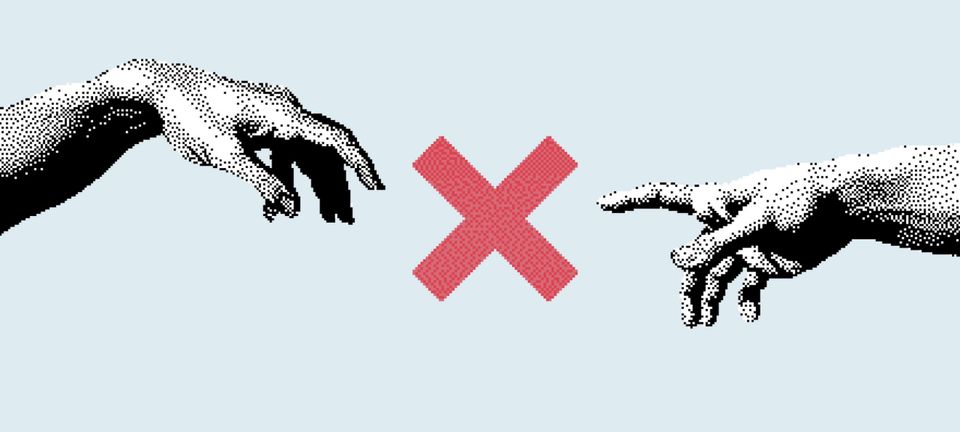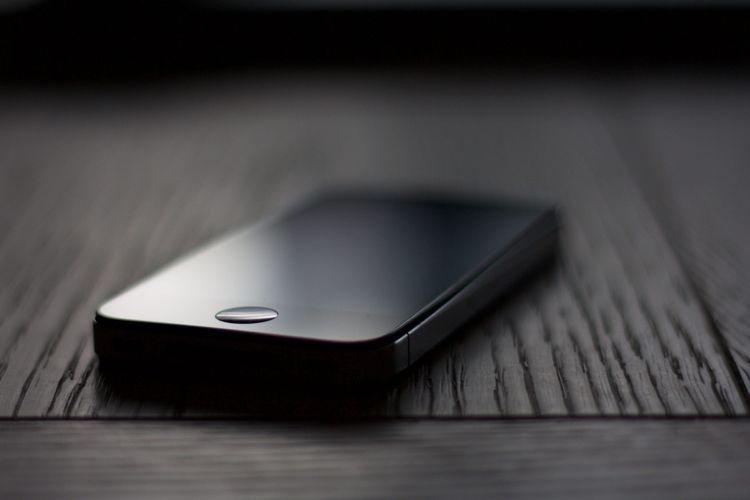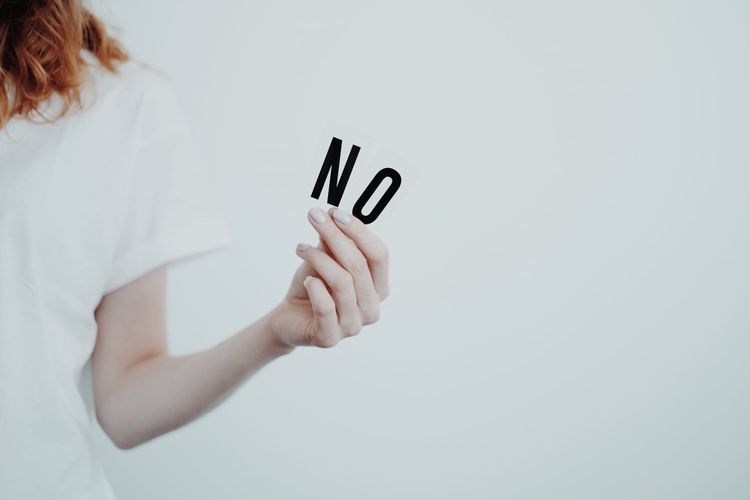Scrupulosity OCD Got Me Into a Toxic Relationship With God

Obsessive-Compulsive Disorder has many faces. It can manifest in the most bizarre, personal ways.
In the world’s eye, OCD is about hygiene, symmetry, order, and goofy idiosyncrasies. Scrupulosity OCD proves there is far more to talk about.
But it’s true that cycles of obsession and compulsion share similar qualities, no matter the content. I’m no therapist. But I’ve had OCD, felt it, worked with it, and recovered from it.
You really can.
This is the story of how OCD manifested when I was a kid, and what I would tell my younger self to free him from his pain. It’s also an introduction to fighting OCD and taking back control of your mind.
Damnation
I was a timid, fragile, 12-year-old kid.
I was hanging out with a friend by some monkey bars outside my school. We were enjoying the day before another kid we knew showed up. He was notoriously self-righteous and condescending.
He had just gotten out of confession at his church, and for some reason, he felt the need to brag about it.
He went out of his way to tell us that if we’ve never confessed our sins, we would be punished by God. And that we were on the fast track to hell. His commanding attitude had me shook. He seemed so certain.
I believed in God, but I didn’t know the rules were so strict. I had to apologize for my sins, or else I wouldn’t be let into heaven? I was shocked to hear that there was something inherently evil about me.
I walked home that night, and I cried. I remember whimpering to myself, “I’m not a bad person… I’m not a bad person…”
I had obsessive tendencies already, but this was something new. I had a new task to obsess over. And that was to be staying in God’s favor, at every moment of the day.
Don’t You Dare Think That
I knew next to nothing about religion. My parents never took me to church. All my knowledge about God I passively picked up from movies and the self-assured beliefs of kids at school.
And I was not the type of kid to reject religion early on because I thought church was “dumb” and worshipped Bill Nye instead.
Nope. I thought God was real, and He was terrifying. My obsessive mind would keep me straight in the eyes of the Lord. This is called scrupulosity OCD, and it became my reality.
I was not allowed to think anything impure or blasphemous. Nothing sexual (I was hitting puberty), nothing crude, and nothing against God or religion. I had to maintain a constant vigilance toward “bad” thoughts.
This can be hard to understand for a person who’s never experienced OCD, but OCD sufferers don’t have thoughts that are violent, obscene, or upsetting because they want to. It’s as if, at all times, they are trying not to think them, and this creates the effect of not trying to think of a pink elephant. All you can think of is a pink elephant.
The OCD mind is built on “what ifs?” So most of your time is spent assuring yourself that the “what ifs” aren’t true.
The Man Upstairs
This is the part where I describe the visceral details of my OCD experience, and it might be disturbing to some readers (self-harm). But it’s the truth. And it’s important for that reality to be shared. You can skip to the next heading if you don’t feel comfortable.
My OCD mind interpreted God as hypersensitive all-powerful thought police.
He was always watching. It was like a game of protecting Jesus Christ from danger in my head. Don’t think a bad thought. Don’t let Jesus fall in the fire. Or get impaled. Or get brutalized. One slip up, and I’m going to hell. God’s all-seeing eye would witness the thought and he would put me on the naughty list for eternity.
The compulsion to my obsession, or how I would ritually rid myself of anxiety, usually came in the form of self-punishment, and often self-harm.
After some perceived unforgivable sin, I would get on my knees at the foot of my bed. I would say a prayer. I had to pray well enough without bad thoughts intruding, which meant I would be praying hard, as if I were trying to fill every word with as much repentance as possible without contaminating it.
This is the equivalent of an OCD sufferer tapping a light switch 366 times to assure themselves that a loved one isn’t going to die.
If I couldn’t get the prayer right, I would dig my nails into my wrist and drag them up my forearm. Or I would hit myself in the jaw with my little fist. This appeased God. This was how I maintained my spiritual hygiene. And this gave me the assurance I could go another minute without worrying about hell. But that minute always passed.
My obsession hit a peak when I forced myself to eat old cheese on Christmas Eve until I vomited, because God is extra sensitive the day before his birthday, and any bad thoughts had to be punished more severely.
Scrupulosity OCD Exposed
OCD is a strange quirk of the mind. It’s completely irrational, and it’s excruciating. It feels like having a doubt that can never be resolved. You are desperate to make that feeling go away. That feeling of never quite getting there. All you want is to be sure.
But here is the secret.
There is no getting there.
OCD enslaves you by making you think you can control the uncontrollable. Healing is accepting that there will always be germs. There will always be disorder. There will always be thoughts you don’t like. There will always be flaws. And there will always be big questions about the universe.
Think of it as an addiction to certainty. Or rather, addiction to rituals that bring you a sense of certainty. You beat it in the long term by embracing the discomfort of uncertainty.
Scrupulosity OCD Salvation
So, what would I tell my 12-year-old self?
First, I would tell him he has OCD, and that at its core, his pain isn’t really about God. There are counselors and therapists who can help him not feel like this anymore.
Then, I would tell him that OCD is overcome by sitting in what you fear most. Specifically, by exposing yourself to what repulses you, feeling yourself tremble in horror, and then not performing the compulsion that saves you from your anxiety. I know that sounds brutal, but that is ERP (Exposure Response Prevention) therapy.
Among the many treatments for OCD, ERP is the most effective. I was always impressed by that. It has a romantic quality to it. It is literally facing your fears. There is nothing easy about it, but it works.
In ERP treatment, you escalate fear exposure while delaying compulsions (even if you perform them mentally), and eventually, you can endure your fear without performing compulsions. Then the anxiety weakens and you start to regain control.
An exposure practice for 12-year-old me would be to purposely think foul thoughts and write them out on paper in gruesome detail. To curse God.
I would tell young me that if God is as powerful as he’s made out to be, then he can handle criticism. And if he’s as loving as he’s made out to be, then he wouldn’t want you to be suffering like this.
A Life Less Certain
My religious beliefs changed over time. My obsessions changed too. If they were no longer about God, they were about something else. My mental health didn’t improve until I addressed my psyche itself, and my OCD. You need to treat the causes, not the symptoms of your pain.
After years of exploring and working with this mental illness, what I’ve learned is this: OCD is a conquerable disorder. Even if that means you manage your obsessions to a point where they have little effect on you.
And if you’re fighting OCD, remember this: Uncertainty is an essential aspect of life. It’s part of the ride, and it’s not something to be rejected. The more you try and control the uncontrollable, the more you bury yourself.
Being a certainty addict, and being a slave to what you can’t be sure of, is no kind of life. So here’s to finding your freedom.



